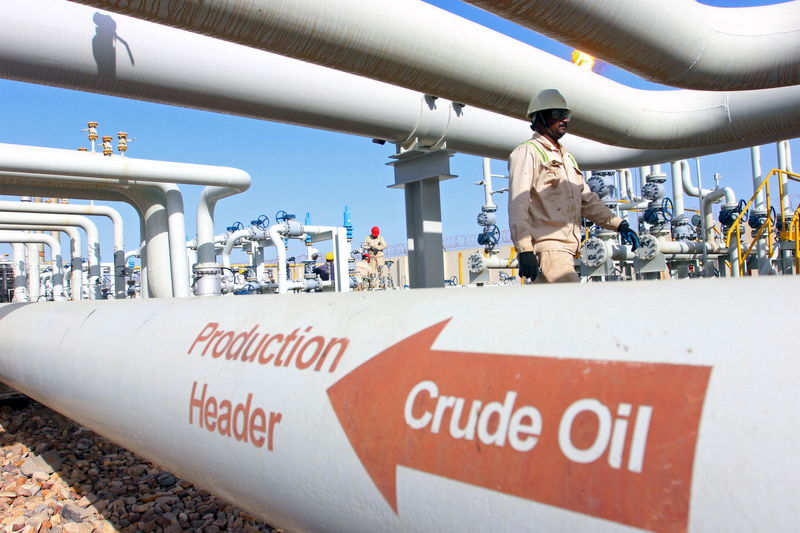By Erwin Seba
HOUSTON (Reuters) -Oil prices finished down on Monday on worries about China’s faltering economic recovery and a stronger dollar were taking the momentum out of seven weeks of gains on tight supply.
U.S. West Texas Intermediate crude settled down 68 cents, or 0.82%, at $82.51 a barrel. futures finished at $86.21 a barrel, down 60 cents, or 0.69%.
With fading hope China’s economy will return to pre-pandemic levels of demand, oil markets have little to pin their hopes to for future growth, said Walter Zimmerman, chief technical analyst with ICAP-TA.
“The problem is as China increasingly proves unable of getting out of its own way to the upside, much less leading the world economy, there’s not much else to lead things higher.”
Market participants are torn, weighing a tight supply-demand balance against signs of weakening demand from China, said Phil Flynn, analyst at Price Futures Group.
“Part of it seems to be the Monday morning blahs. I think we still have to face a market that’s very tight,” Flynn said.
Vandana Hari, founder of oil market analysis provider Vanda (NASDAQ:) Insights, said a correction may be in the cards for crude markets.
“Crude has been in overbought territory for some time now, defying expectations of a correction,” Hari said. She added that the focus had been on U.S. economic optimism, to the exclusion of economic headwinds in the euro zone and China.
Weighing on oil prices, the extended gains after a slightly bigger increase in U.S. producer prices in July. That lifted Treasury yields despite expectations the Federal Reserve is at the end of a campaign of hiking interest rates. [FRX/]
A stronger dollar pressures oil demand by making the commodity more expensive for buyers holding other currencies.
Separately on Monday, a Shell (LON:) spokesperson said exports of Nigeria’s Forcados resumed on Sunday, roughly a month after loadings of the medium sweet grade were suspended because of a potential leak at the export terminal.
The suspension contributed to Nigeria becoming the second-biggest contributor to the drop in OPEC crude oil output in July, a Reuters survey showed.
Supply cuts by Saudi Arabia and Russia, part of the OPEC+ group comprising the Organization of the Petroleum Exporting Countries and allies, are expected to erode oil inventories over the rest of the year, potentially driving prices higher, the International Energy Agency said in a monthly report on Friday.
Around the Black Sea, merchant ships remained backed up in lanes on Monday as ports struggled to clear backlogs amid growing unease among insurers and shipping companies a day after a Russian warship fired warning shots at a cargo vessel.
Read the full article here












